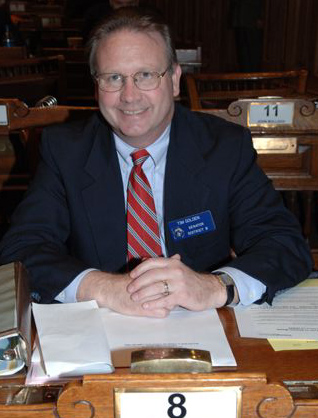 Dr. Sidney Smith explained how the electric meter he’s developed
uses cellular technology to facilitate direct billing from
solar generator and customer.
Gretchen asked him what if they generate more than they use.
Dr. Smith said they wouldn’t.
I asked what if they added more panels.
He said they could, but there are trees in the back.
Dr. Sidney Smith explained how the electric meter he’s developed
uses cellular technology to facilitate direct billing from
solar generator and customer.
Gretchen asked him what if they generate more than they use.
Dr. Smith said they wouldn’t.
I asked what if they added more panels.
He said they could, but there are trees in the back.
Here’s Part 1 of 5:
Enabling a commodity market in solar power: Dr. Smith’s electric meters Part 1 of 5:
South Eastern Pathology Associates,
Selling Power, Lower Rates for Customers LLC (LRCLLC),
Richmond Hill, Bryan County, Georgia, 17 February 2012.
Videos by Gretchen Quarterman for LAKE, the Lowndes Area Knowledge Exchange.
He forgot about the parking lot out front where the panels he just connected are located: no shading there, and plenty of room for more solar panels.
Dr. Smith said the best places for solar are where there is no shade and near power poles. Gretchen asked how do you finance? Dr. Smith answered, Continue reading











